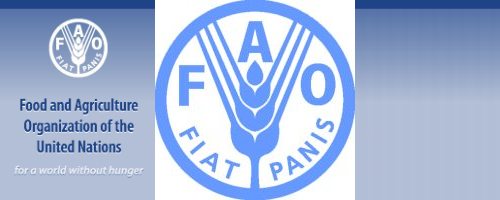Influence food security and nutrition governance.
Influence food security and nutrition governance
New online consultation on food security and nutrition launched
Rome – The Committee on World Food Security (CFS) has launched a new online consultation on food security and nutrition governance.
The purpose of the consultation is to gather inputs for the preparation of the Global Strategic Framework for Food Security and Nutrition (GSF), a document being developed to improve coordination and support global, regional and country-led actions to prevent future food crises, eliminate hunger and ensure food security and nutrition for all.
New approach
The CFS has opened the discussion to the general public, providing a significant opportunity for all stakeholders around the world to participate in the global policy debate and ultimately contribute to this important framework.
“It is vital that the Global Strategic Framework for food security and nutrition is based on the reality on the ground, drawing on best practices and lessons learned from local experience and the expert advice and opinions of different stakeholders. Therefore, everybody is invited to express views and opinions on what the priorities of the GSF should be with a view to improve coordination and guide actions towards a more food secure world” said Noel de Luna, CFS Chair.
A dynamic document
Drawing on the advice and expertise of experts and stakeholders, the Global Strategic Framework is meant to add value to other international frameworks for food security and nutrition. Thus, the GFS is designed to be a living document to be updated periodically by the CFS Plenary.
Participate in the consultation
The consultation will be open until 15 October 2011 and the results of the online consultation will be presented at the 37th Session of the CFS in Rome, Italy, in October.
The discussion on the GSF will take place in English, Spanish, French, Arabic, Russian, and Chinese. Those interested in participating in the consultation can post contributions directly on the web site http://km.fao.org/fsn/cfs/ or send an email to fsn-moderator@fao.org
###
> UN Food and Agriculture Organization (FAO).
The Food and Agriculture Organization of the United Nations (FAO) is an intergovernmental organization and has 191 Member Nations, two associate members and one member organization, the European Union. Achieving food security for all is at the heart of FAO’s efforts – to make sure people have regular access to enough high-quality food to lead active, healthy lives.

FAO’s mandate is to raise levels of nutrition, improve agricultural productivity, better the lives of rural populations and contribute to the growth of the world economy.
The Food and Agriculture Organization of the United Nations (FAO) is working with its Members and the entire international community for achievement of the Millennium Development Goals.
These eight goals – each with specific targets and indicators – are based on the United Nations Millennium Declaration, signed by world leaders in September 2000. They commit the international community to combating poverty, hunger, disease, illiteracy, environmental degradation, and discrimination against women.
![]()
The eight Millennium Development Goals are:
Goal 1: Eradicate extreme poverty and hunger
Goal 2: Achieve universal primary education
Goal 3: Promote gender equality and empower women
Goal 4: Reduce child mortality
Goal 5: Improve maternal health
Goal 6: Combat HIV/AIDS, malaria and other diseases
Goal 7: Ensure environmental sustainability
Goal 8: Develop a Global Partnership for Development
* More information at UN Food and Agriculture Organization (FAO)
###
> United Nations (UN).
 The United Nations was established on 24 October 1945 by 51 countries committed to preserving peace through international cooperation and collective security. Today, nearly every nation in the world belongs to the UN: membership totals 192 countries.
The United Nations was established on 24 October 1945 by 51 countries committed to preserving peace through international cooperation and collective security. Today, nearly every nation in the world belongs to the UN: membership totals 192 countries.
When States become Members of the United Nations, they agree to accept the obligations of the UN Charter, an international treaty that sets out basic principles of international relations. According to the Charter, the UN has four purposes:
- to maintain international peace and security;
- to develop friendly relations among nations;
- to cooperate in solving international problems and in promoting respect for human rights;
- and to be a centre for harmonizing the actions of nations.
###
* The above story is adapted from materials provided by United Nations (UN)
** More information at United Nations (UN)





















